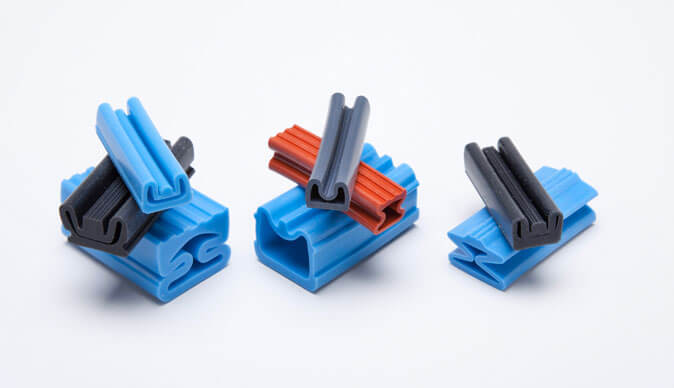Inflator seals, also known as inflation seals or inflatable seals, are specialized sealing devices designed to provide unique advantages in various industrial applications. They are typically made from flexible materials such as elastomers and can be inflated or deflated to create and release seals as needed.
Here are the key uses and benefits of inflator seals:
Uses:
- Pressure Sealing: Inflator seals are used to create airtight or watertight seals in applications where traditional static gaskets may not be suitable. They are often employed in high-pressure or vacuum environments, such as pressure vessels, testing equipment, and pneumatic systems.
- Adjustable Sealing: Inflator seals offer adjustability, allowing users to control the level of sealing force by adjusting the inflation pressure. This flexibility is valuable in applications where sealing requirements may change over time or where precise sealing pressure is needed.
- Sealing Irregular Shapes: Inflatable seals can conform to irregular or non-uniform surfaces, making them suitable for sealing uneven or complex geometries. This capability is useful in applications like sealing hatches, doors, or lids.
- Containment and Isolation: They are used for creating containment barriers in hazardous environments. Inflator seals can isolate equipment or processes from the surrounding environment, preventing the release of hazardous substances.
- Testing and Leak Detection: Inflator seals are employed in testing equipment to perform leak tests, pressure tests, and integrity tests on various components and systems. They ensure a reliable seal during testing procedures.
- Fluid Control: Inflator seals can be used to control the flow of fluids or gases within a system. By inflating or deflating the seal, the flow can be regulated or completely blocked, allowing for fluid control in valves, pipelines, and other fluid-handling systems.
- Dampening and Vibration Isolation: In some applications, inflatable seals are used to dampen vibrations or isolate equipment from external vibrations, reducing wear and tear on machinery and improving operational stability.
Benefits:
- Versatility: Inflator seals are versatile and adaptable, capable of sealing various shapes and sizes of openings and equipment. They can be customized to meet specific application requirements.
- High Sealing Performance: When properly designed and inflated, these seals can provide high levels of sealing performance, with the ability to withstand significant pressure differentials and maintain a secure seal.
- Reduced Maintenance: Inflator seals have a longer service life compared to traditional static gaskets in applications with dynamic or changing sealing requirements. This reduces the need for frequent maintenance and replacement.
- Precision Control: The inflation pressure can be precisely controlled, allowing for fine-tuned adjustments in sealing force and contact pressure. This precision is essential in applications where over-compression or under-compression can affect performance.
- Contaminant Exclusion: Inflator seals can effectively exclude contaminants, such as dust, dirt, and moisture, from entering equipment or systems, thereby improving equipment reliability and longevity.
- Safe Isolation: In hazardous environments, inflatable seals can safely isolate processes or equipment, preventing the release of dangerous substances and protecting personnel and the environment.
- Cost-Effective: While they may have a higher upfront cost compared to static gaskets, inflatable seals can offer cost savings over time due to their longer lifespan and adaptability.
In summary, inflator seals are valuable sealing solutions that provide flexibility, precision, and versatility in a wide range of industrial applications. Their ability to create reliable seals, adjust sealing force, and accommodate irregular surfaces makes them particularly useful in challenging environments and dynamic sealing requirements.


